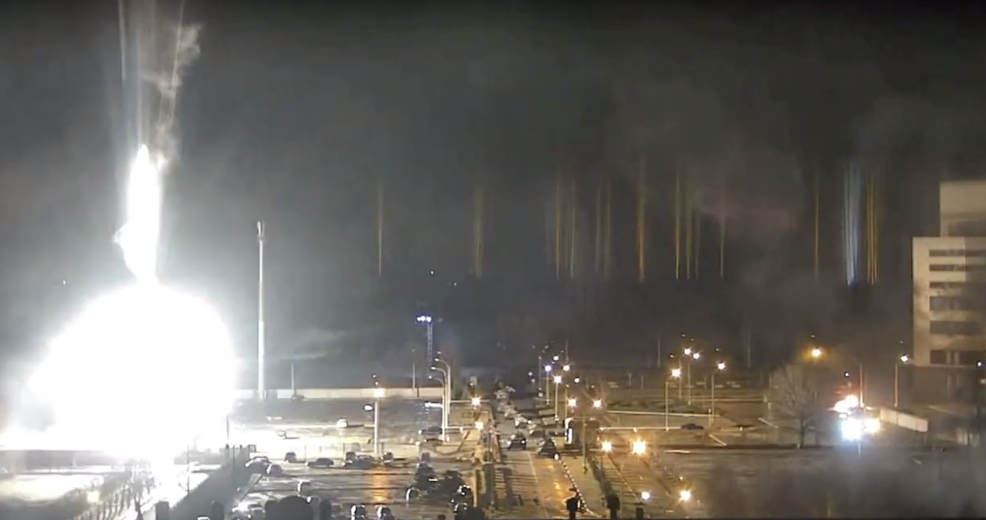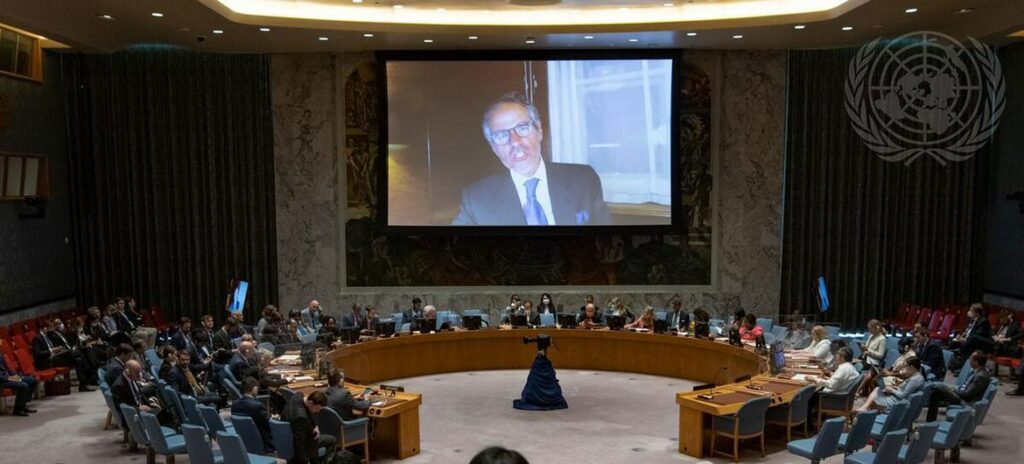The situation at Ukraine’s Zaporizhzhia nuclear power plant has deteriorated rapidly to the point of becoming “very alarming,” the International Atomic Energy Agency (IAEA)'s Director General Rafael Mariano Grossi said.
The head of the IAEA confirmed that on 5 August, Europe’s largest plant was subjected to shelling, which caused several explosions near the electrical switchboard and a power shutdown. However, previous reports that Russian forces were threatening to blow up the power plant on 8 August are now thought to have been false, according to the Institute for the Study of War (ISW).
“These military actions near such a large nuclear facility could lead to very serious consequences,” Grossi told the UN Security Council on Thursday, a meeting requested by Russia, which has occupied the plant since March.
The ongoing crisis at the plant has become a blame-game between the two parties, with Russia accusing Ukrainian forces of using heavy artillery against Zaporizhzhia on 5 August, shelling the plant during a shift change to intimidate staff.

Screen grab from official live stream of Zaporizhzhia Nuclear Power Station when it came under Russian occupation in March.
In turn, Ukraine’s representative said that the withdrawal of Russian troops and return of the station to the legitimate control of Ukraine is the only way to remove the nuclear threat at Zaporizhzhia.
While he said that IAEA experts, based on the most recent information provided by Ukraine, have assessed that there is no immediate threat to nuclear safety as a result of the shelling or other recent military actions, he warned that "this could change at any moment."
Need for examination
One reactor unit was disconnected from the electrical grid, triggering its emergency protection system and setting generators into operation to ensure power supply.
However, without a physical presence on the site, it is near impossible for IAEA to understand the current situation, as it received contradictory information from Ukraine and Russia about the status of the facility, its operation and the damage it sustained.
Last week, Grossi already said he was "extremely concerned" by reports of damages at the plant and called for nuclear experts from IAEA to be allowed to examine the site, a call that he repeated on Friday, calling on "both sides to cooperate with the IAEA and allow for a mission to as soon as possible. Time is of the essence.”
He explained that this would allow the organisation to carry out important technical activities in nuclear safety, security and safeguards and at the same time provide a "stabilising influence."
Related News
- Eighty Belgian soldiers depart for NATO mission in Lithuania
- Moscow starts recruiting volunteers for war, says British secret service
- EU ban on Russian coal takes effect at midnight
“It is those facts, gathered during a site visit, that are needed for the IAEA to be able to develop and provide an independent risk assessment of the nuclear safety and security risks,” he said, adding that this would be beneficial to the independent work of the IAEA, but also to the operators and regulators of the nuclear plant."
He concluded that any nuclear catastrophe "would be unacceptable and thus preventing it should be our overarching goal. This is a serious hour, a grave hour, and the IAEA must be allowed to conduct its mission in Zaporizhzhia as soon as possible.

